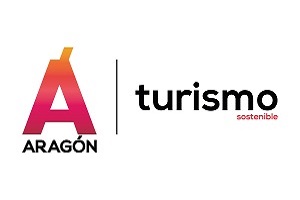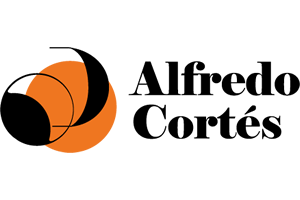Marisa Felipe Escriche (Zaragoza, 1968) has spent more than a decade dedicated to the development of leadership in organizations, with special attention to the visibility of female leadership. With a degree in Information and Documentation and a diploma in Library Science and Documentation from the University of Zaragoza, Marisa Felipe will release her third novel, `Casa Valer. A deception, a family, a hidden truth’, a tribute to the family, the rural environment and the Aragonese character. The work, which will be presented at the headquarters of the company oscence Eboca, narrates the events of the Spanish people in the sixties, with the aftermath of the civil war on the elderly, the rural exodus and the economic boom of the following years with the beginning of democracy and the development of the cities.
Marisa Felipe is a coach and writer who is also well known for transferring her knowledge about leadership to the school environment, so since 2013 she has been giving talks to parents, teachers and students of secondary and higher education. A facet from which emerged one of her most successful novels, `Adolescentes del siglo XXI’, her second book after `Cesaraugusta Falls’, her debut novel, in which she unravels the knowledge of the coaching universe. The Aragonese author, trained in emotional intelligence, NLP and mindfulness, has been invited to participate in the meeting of Aragonese women writers in Yésero, in the Trinitario Bartolomé Cultural Days and in talks/colloquium of La Casa del Libro.
Soon to be released `Casa Valer’, her latest novel, which has Huesca as its main setting.
The novel takes place in a village in Huesca, in a very familiar universe, very rural, very Aragonese. It speaks of that universe, of the family, of relationships, especially relationships between women, which is one of the subjects that most occupies me and worries me.
What historical period is the plot set in?
It is contextualized in the present, but it does go into the past. It tells the story of the family life of the protagonist in the sixties of the twentieth century, the development of cities, the exodus from the rural environment to other countries, to other cities?
MY LINK WITH THE WORK ENVIRONMENT IS VERY STRONG, WITH THE REALITY OF ARAGONESE COMPANIES.
A novel about the transition from rural to urban life.
How this exodus, or this rural origin, influences relationships. And how the different migrations that have taken place over time have also influenced the character and lives of people.
What was the inspiration for this latest novel?
Although it is a fictional novel, it is true that I have always had my mother’s town in mind, because it has been a very important place in my life. It is a place that I have not lived much, but it has always been very present in my life. When I write I let myself flow, I don’t follow a clear structure of what I’m going to tell. But the novel was born in that environment, that’s why I wanted the presentation to be very close to that place where it takes place.
Where will the novel be presented?
On December 16 at Eboca, a company that I like very much, which shows what is being done in the business environment of Aragon. As my link with the work environment is very strong, with the reality of Aragonese companies, I also wanted to show that, what is being done and that we can do different, disruptive things, and we can mix novels and the business environment. I also wanted to unlink those presentations that I had had in Zaragoza and move them to another city.
Somehow “delocalize” the center of Aragon’s cultural life.
As the mayoress of Huesca, Lorena Orduña, said in Go Aragón recently, “we want to put Huesca on the map”. Just the day I read this headline, she had closed the presentation at Eboca, I thought it was a very nice coincidence.
This presentation connects, thus, with her facet as a coach specialized in leadership for companies, although she is so well known as a coach in school environments.
This is my main professional facet. What happens is that I have a twenty-year-old son, and when I accompanied my son to school I realized that parents live with a lot of stress. And I decided to transfer what I was doing in organizations, that leadership and working on oneself to get better results and make better decisions, to the school environment. And this facet in the school environment has had much more impact, although my work is focused on leadership within organizations.

In fact, it was his novel ‘Adolescentes del siglo XXI’, which revolves around the concept of leadership within the family, one of his main publishing successes: the week of December 12 to 18, 2022, it was one of the best sellers in the Aragonese capital, according to data provided by the Association of Bookstores of Zaragoza.
Moreover, it was very fast, we had just released it and in the first week it was already placed as the best-selling non-fiction book in Aragon. It was a huge surprise and satisfaction. The topic of teenagers is very hot and worries parents a lot. That’s why I also wrote it, I saw that parents needed to calm down and relax during this period.
This book is presented under an interesting premise: “to be able to lead ourselves so that our children can lead themselves”.
We live in a society where everything happens very fast, where we have many impulses, and where we attend to many things that do not give us time to stop. The fact of leading ourselves means that we need to take perspective: we are very attentive to our children and we are neglecting ourselves a little bit. We parents also believe that we educate with what we say, but in reality we are educating with what we do. That’s why I emphasize the need to take perspective, to stop for a while and realize how we are doing. Because sometimes we are demanding things from our children that we are not doing. To lead is to observe ourselves: if we are calm, if we undertake the tasks in a demanding way with them?
We are going “like headless chickens”, as they say.
Totally, and it is one of the signs of our society. Parents are very concerned about their children’s education, and I think we should take a step back in the sense that we are going to look at ourselves, and from there we are going to see what we are going to change.
WHEN I WAS ACCOMPANYING MY SON TO SCHOOL, I REALIZED THAT WE PARENTS WERE LIVING WITH A LOT OF STRESS. I DECIDED TO TRANSFER WHAT I WAS DOING IN ORGANIZATIONS TO THE SCHOOL ENVIRONMENT.
In ‘Adolescents of the 21st century’ you propose different leadership techniques: reflection, acceptance and change management, the art of asking questions, mindfulness, self-motivation… is it complicated nowadays to follow these techniques?
No, not at all, there is always a moment for everything, what happens is that we are very busy with many things that do not generate that space for reflection. One of the things I observe with parents is that they are very concerned about the misuse of devices, especially the telephone. But I always tell them that we are also misusing these devices. We also have social networks, we also invest a lot of time in that. The first thing I recommend is to stop and observe what you are doing. It is easy to see, in many meals outside the home, how many parents are eating with young children and offer them the cell phone for them to eat and talk quietly. We encourage something that we then criticize. But this must be welcomed without guilt, without more responsibility … become aware without pressure and relaxed.
The popular pediatrician Carlos González often says that nowadays we want to have children, but we don’t want them to be noticed. That is why sometimes if we are at a family meal we offer them digital devices so that “they don’t bother”.
In these eleven years that I have been in the school environment with parents I have seen a change. Parents are becoming more and more over-informed, we look for a lot of information, but then we don’t do anything with it. We listen to someone who tells us one thing, someone else who tells us another… we have a jumble of things that are then difficult to implement. Some techniques are very difficult for us because they have nothing to do with us. I cannot undertake some of the techniques that tell me to be patient if I am a whirlwind, for example. We have to see how we adapt what we hear to our family model. Not everything is the same for everyone, not all of us understand life or education in the same way.
The book invites us to recover the “kind treatment”, not only with our adolescents, but also with what we have achieved as parents. Is parenthood so bad for us in the 21st century?
During our children’s adolescence something happens that is very obvious, and yet we are overlooking it. And that is that when our children pass adolescence, it is very likely that we are in another vital stage which is menopause and andropause. Then, we are living our own inner revolution. Thus, in a house, adolescence is combined with a mother’s menopause and a father’s andropause. That is a powder keg. If we add to that personal crises, labor crises, economic crises, political crises… what each one of us is living in our cities, autonomous communities or country. Adolescence is sometimes the excuse where we channel those many other things that are happening.

And with today’s access to information, we worry about things we didn’t know before.
There are things that can’t be made up. And when it comes to adolescents, there are data that are really very alarming. But it is only one of the parts that make up that reality. I say that we should not only focus on one of those parts, but we should look at all the others, which are very interesting. And adolescence encompasses many things.
Have we lost perspective on the risks of adolescence in previous generations and today?
I was young in the 1980s and more than half of my generation died from drugs. It is a fact that is there. It is true that each era and context has its own specific problems. In the nineties the Ruta del Bacalao was devastating… each generation has its own context that affects this group, which of course is very vulnerable.
In your books you often mention Aristotle, who was already complaining about young people 2,000 years ago.
Yes, there is nothing new under the sun. Technology has changed a lot our way of living and the way we see things. But the sense of family, of how we live family relationships, especially with children, has not changed much, they are always problematic. It is true that now what we want is to have a life like the one shown on social networks: a perfect life where children are wonderful and parents are lovely, where there is no shouting or quarrels, and this is not real. Let’s take these differences between family members as normal.
Do we have less tolerance for failure as parents?
I don’t know if we can fall into generalization, but from my work I see that there is a lot of particular frustration. We probably put those frustrations we have on our children, but this was also experienced by our parents.
Difficult adolescents or immature adults?
We are accusing our teenagers of being immature, and they are, they come into organizations with a clear immaturity, but we are also very immature. We have behaviors that, in my opinion, are not mature.
WE WANT TO TRANSFER THE TECHNIQUES WE KNOW FOR THE DEVELOPMENT OF PEOPLE TO ORGANIZATIONS AND PEOPLE WHO DO SO MUCH FOR OTHERS.
We are mistaking the role, a father cannot be a friend, he must undertake the tasks of a father. And there are parental tasks that we do not like to undertake. We have to learn to say “no”. We can have a cordial and friendly relationship with our children, but a parent is a parent and a friend is a friend. And if I confuse those roles, the tasks associated with those roles are going to get confused. A parent sometimes has to say things that the child is not going to like to hear. But it’s at home and in the family home where he has to listen to those things.
In addition to the successful `Teens of the 19th Century’ and the soon-to-be-released `Casa Valer’, you also wrote `Cesaraugusta Falls’, the title with which you made your debut in the world of literary production.
Caesaraugusta Falls’ was the first book I wrote. All the books I have written respond to a need that I have seen or observed in my work environment. The first book came about when I saw that there was a lot of ignorance about coaching, I heard a lot about it, but the term was confused. That’s why I decided to write a fiction novel that would comment on what coaching is. I have realized that there are many characteristics that all the books I have written share, and one of them is the love for the land. I feel very Aragonese and without wanting to express that love. You can see that in `Cesaraugusta Falls’, with the Pilar in the background, and the protagonists are also very Aragonese.
You are a coach specialized in Organizational Leadership aimed at organizations and the educational environment.
I do specific training in leadership development and coaching processes. We work on the person and observe which aspects of their daily life are less productive.
You are also a member of the solidarity area of AECOP. What kind of work can you do in this context?
I really like to know what is going on within the organizations and the work I do, and that is why I am part of several organizations. One of them is the Spanish Association of Coaching (AECOP), in which we do free coaching processes for NGOs, such as Caritas, Plena Inclusion Aragon, Spanish Association Against Cancer, AMAC-GEMA, Sos Racismo, Red Cross… we want to transfer these techniques that we know for the development of people, to those organizations and people who do so much for others.

Marisa Felipe Escriche poses with her latest book. Photo: Marisa Felipe
She is also a member of the association Directivas de Aragón.
Yes, there I participate in several projects, especially for the development of leadership of women managers and pre-directive women.
Is female leadership different from male leadership?
I have a particular vision and it is based on my experience. Ninety percent of my clients are women. At least, in the organizations where I work, I always work with women. We are living in a time in which there are many impulses that are throwing us off many things. I observe that working women in general are very angry and very tired. We are angry because of everything that is going on around us, and tired because we believe that we think we have to work harder and better to be recognized. I always ask us to observe, from these two emotions, anger and tiredness, what we are getting. If we really want to have a feminine leadership, and leadership is always influence (a leader always has an influence on her results and on the people around her), we have to observe what leadership, what influence we are having on our environment. When I observe the influence that I give from my tiredness and anger, I realize that there are many things that we can change.
WE ARE GOING TO SAY WHAT WE DO AND VALUE WHAT OTHER WOMEN DO.
First I have to see what I am good at, what my innate talent is. Not only for great things, but also on a daily basis. I develop it, I strengthen it, I put it at the service of others, and from there I develop my leadership. And I make it known, because we are waiting for organizations or institutions to do something and recognize us. When we ourselves are very “embarrassed” to tell what we do well. We are going to say what we do. And if we are ashamed to say what we are doing, let us value what other women are already doing. In our autonomous community, three women are governing the city councils of the three provincial capitals. Let us value this “something” that is historical. That is where I want us to focus, not on whether there are differences or not. Because I believe that it misleads us and wears us down. We are afraid of appearing arrogant if we count our achievements, but if we don’t count them ourselves, who is going to count them? We need to let future generations know that they have references, we need to create a collective imaginary.
And all with a sense of humor, something she focuses on: she does not conceive life without humor.
Humor is a destensor element. In the face of life’s big situations, one has to take it with humor. It is a resource we have as human beings.















